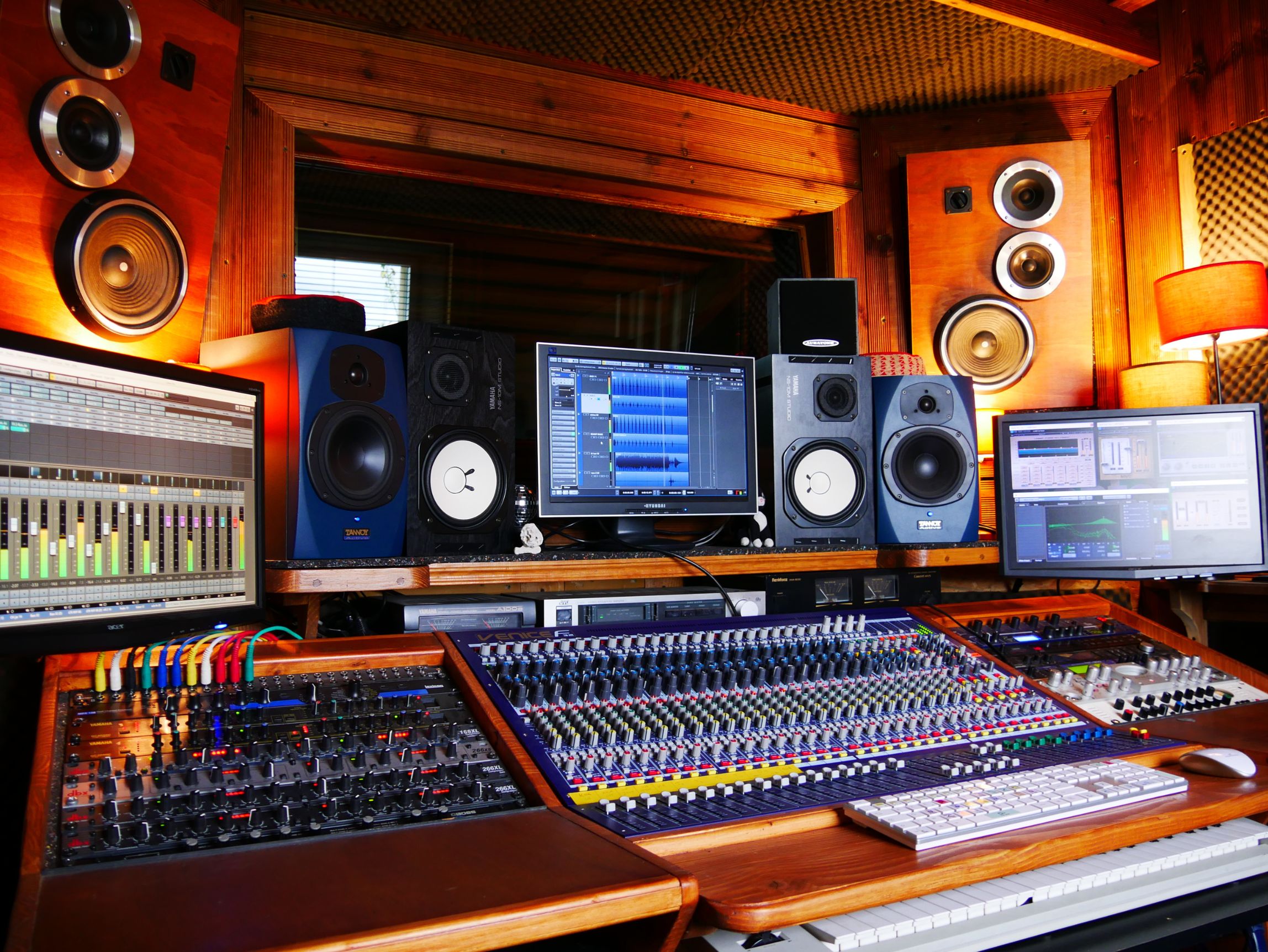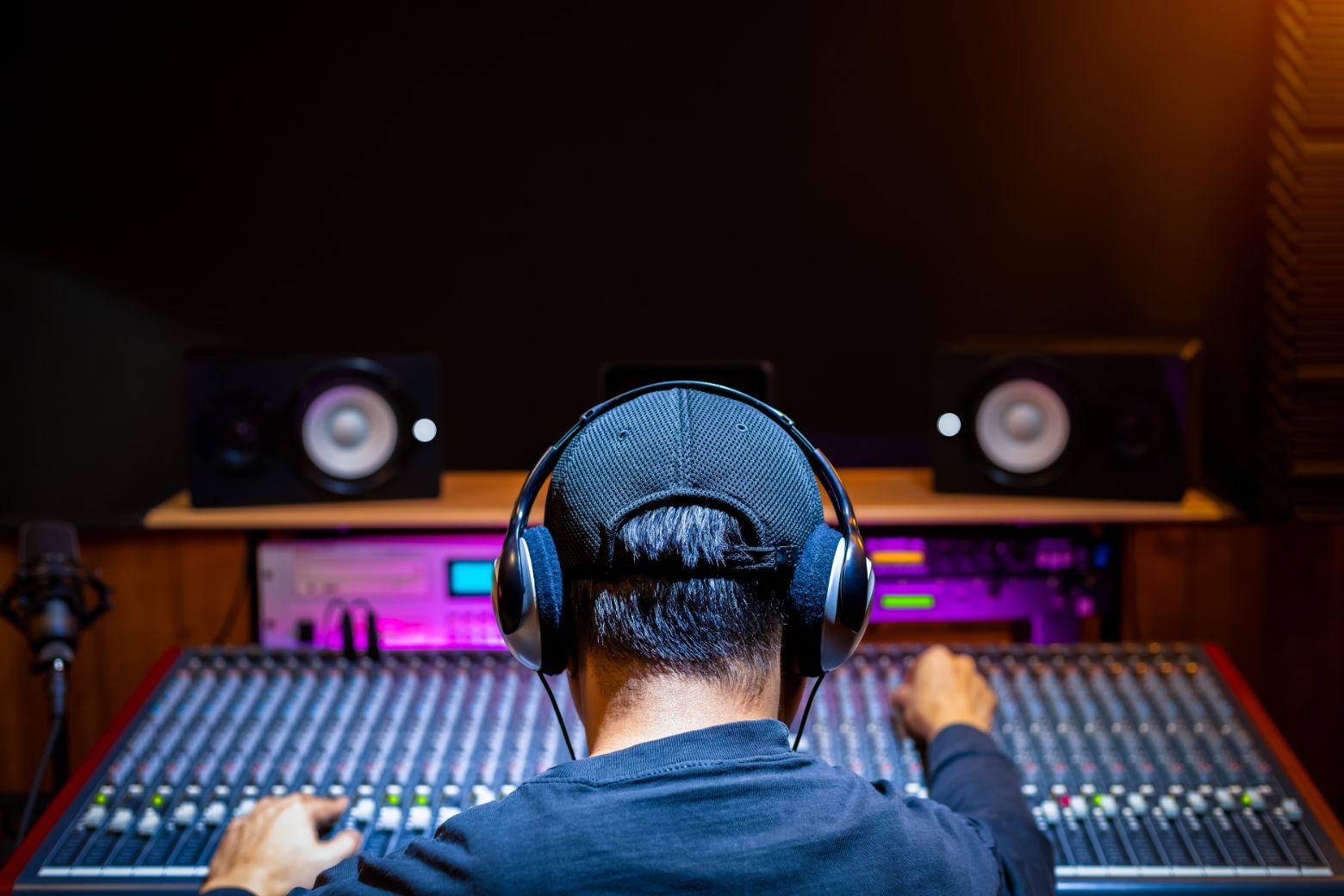From mastering the technical aspects to honing creativity, this blog post will provide you with practical tips to kickstart your career in music production.
The role of the music producer has evolved over the years. For aspiring artists and music producers, understanding the essential skills required to excel in this dynamic field is crucial.
In this guide, we will explore the ten vital skills every budding music producer needs to develop.
What is a music producer?

A music producer is someone responsible for overseeing the entire recording process of a song or album. They play a pivotal role in shaping the artistic vision of a project, collaborating with artists, musicians, and sound engineers to create a final product.
A music producer’s duties range from selecting the right equipment and software to managing budgets and schedules. They are the glue that holds a musical project together, ensuring all elements come together.
The role of a music producer can vary depending on the genre and scale of the project. For instance, in electronic music, producers often create entire tracks from scratch using digital audio workstations (DAWs). In rock or pop music, they may focus more on arranging and recording live instruments. Regardless of the genre, a successful music producer must possess a blend of technical ability, creative flair, and people skills.
What 10 skills are needed for a music producer?

1) Technical ability
Technical ability is the foundation of any successful music producer’s skill set. This includes a solid understanding of DAWs, such as Logic Pro, Ableton Live, and FL Studio. Producers must know how to use these tools to record, edit, and mix tracks. Also, knowledge of audio engineering principles, such as EQ, compression, and reverb, is essential for creating polished and professional-sounding recordings.
2) Musical knowledge
A deep understanding of music theory and composition is crucial for any music producer. This knowledge allows producers to make informed decisions about harmony, melody, and rhythm, which are essential components of any successful track. Familiarity with various instruments and their roles within a song can also enhance a producer’s ability to create rich and dynamic arrangements.
3) Creative flair
Creativity and innovation are at the heart of music production. Producers must constantly push the boundaries of what is possible, experimenting with new sounds, techniques, and technologies. This ability to think outside the box and bring fresh ideas to the table is what sets top-tier producers apart from the rest.
4) Communication and collaboration
Strong communication and collaboration skills are vital for working effectively with artists, musicians, and other industry professionals. Producers must be able to articulate their vision clearly and listen to the input of others. Building positive relationships and creating a collaborative environment enhances the creative process.
5) Project management
Music producers often juggle multiple projects simultaneously, making strong project management skills essential. This includes setting realistic deadlines, managing budgets, and coordinating schedules. The ability to stay organised and keep a project on track is crucial for delivering high-quality results on time.
6) Marketing and networking
In today’s competitive music industry, producers must also be skilled in marketing and networking. Building a strong personal brand and establishing connections with industry professionals can open doors to new opportunities. Understanding how to self-promote and cultivate a professional online presence is valuable for any aspiring producer.
7) Adaptability and resilience
The music industry is constantly evolving, and producers must be adaptable and resilient to stay ahead of the curve. This means staying up-to-date with the latest trends, technologies, and industry developments. The ability to bounce back from challenges and continue striving for success is a hallmark of a successful producer.
8) Attention to detail
Attention to detail is a critical skill for music producers. This involves carefully listening to every element of a track and making precise adjustments to achieve the desired sound. Producers must have a keen ear for identifying flaws and a meticulous approach to refining their work.
9) Financial awareness
Understanding the financial aspects of music production is essential for managing budgets and making informed business decisions. Producers should be familiar with the costs associated with recording, mixing, and mastering, as well as the various revenue streams available in the music industry.
10) Continuous learning
The world of music production is always evolving, and successful producers are committed to continuous learning. This involves staying current with new technologies, techniques, and industry trends. Attending workshops, taking online courses, and engaging with the producer community can help aspiring producers stay ahead of the game.
What are typical music producer wages in the UK?

The wages of music producers in the UK can vary widely depending on factors such as experience, reputation, and the scale of the projects they work on. According to data from Glassdoor, the average annual salary for a music producer in the UK is around £41,000.
Freelance music producers often have more variable incomes, with earnings fluctuating based on the number and size of projects they take on. Some producers also earn additional income through royalties, licensing deals, and other revenue streams.
It’s important to note that building a successful career as a music producer often requires time and persistence. Many start by working on smaller projects or assisting established producers before gradually building their own client base.
Who are influential music producers?

Quincy Jones
Quincy Jones is a legendary music producer known for his work with iconic artists such as Michael Jackson, Frank Sinatra, and Ray Charles. His innovative production techniques and ability to blend different musical genres has left a huge mark on the music industry.
Dr. Dre
Dr. Dre is a pioneering figure in hip-hop production, known for his work with artists like Snoop Dogg, Eminem, and Kendrick Lamar. His signature sound, characterised by heavy basslines and sharp beats, has influenced numerous producers and shaped the sound of modern hip-hop.
Max Martin
Max Martin is a prolific pop music producer who has crafted hits for artists such as Britney Spears, Taylor Swift, and The Weeknd. His knack for creating catchy melodies and polished productions has made him one of the most successful producers of contemporary music.
Rick Rubin
Rick Rubin is a versatile producer known for his work across various genres, including hip-hop, rock, and country. He has collaborated with artists like Johnny Cash, the Red Hot Chili Peppers, and Kanye West, earning a reputation for his minimalist production style and ability to bring out the best in artists.
Nile Rodgers
Nile Rodgers is a legendary producer and guitarist known for his work with the band Chic and his collaborations with artists like David Bowie, Madonna, and Daft Punk. His innovative use of rhythm guitar and production techniques have made him a key figure in the development of funk, disco, and pop music.
How do I become a music producer?

Education and training
While formal education is not always necessary, enrolling in a music production course can provide valuable knowledge and skills. Many institutions offer specialised programmes in music production, audio engineering, and related fields.
For example, Access Creative College offers a range of music tech courses designed to equip aspiring producers with the technical and creative skills needed to succeed in the industry.
Gain practical experience
Hands-on experience is crucial for developing your skills as a music producer. Start by working on your own projects or collaborating with local artists. Building a portfolio of work will showcase your abilities and help you attract potential clients and collaborators.
Build a professional network
Networking is essential for gaining exposure and opportunities in the music industry. Attend industry events, participate in online forums, and connect with other producers, artists, and industry professionals. Building a strong network can open doors to new projects and collaborations.
Invest in quality equipment
Having access to quality equipment is important for producing professional-sounding recordings. Invest in a reliable computer, a good-quality audio interface, studio monitors, and a selection of microphones and headphones. Additionally, choose a DAW that suits your workflow and invest in essential plugins and virtual instruments.
Stay current with industry trends
The music industry is constantly evolving, and staying up-to-date with the latest trends, technologies, and techniques is crucial for success. Follow industry blogs, attend workshops, and participate in courses to keep your skills sharp and stay ahead of the competition.
A fully-rounded music producer

From technical proficiency and musical knowledge to creativity and effective communication, each skill plays a vital role in shaping a producer’s career.
If you’re ready to take the next step in your music production journey, consider enrolling in one of the music tech courses we offer at Access Creative College. Our expert-led programmes provide the knowledge, practical experience, and industry connections needed to thrive as a music producer.






